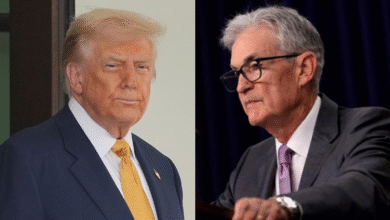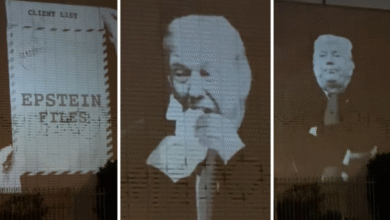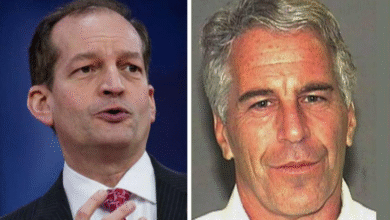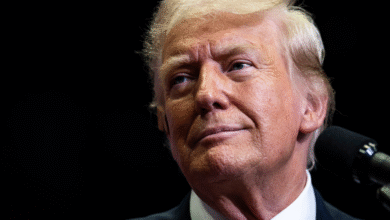Venezuelan Prisoners Return: A Controversial Exchange
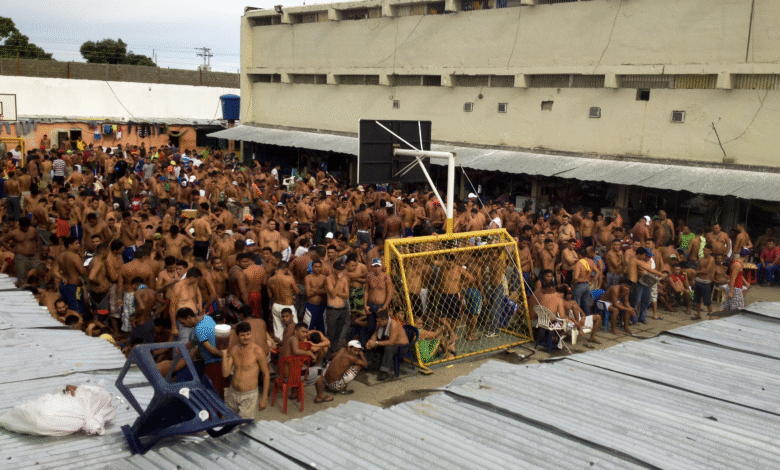
Venezuelan prisoners have become a significant focal point in the complex relations between multiple nations, especially with the recent developments surrounding their repatriation. El Salvador’s President Nayib Bukele announced that Venezuelan immigrants detained in his country’s notorious mega-prison, CECOT, have been flown back to Venezuela. This move is linked to a prisoner exchange deal, where the Venezuelan government agreed to free a notable number of political prisoners, alongside American citizens held as hostages. The Trump administration’s stringent immigration policies, particularly the enforcement of the Alien Enemies Act, have been under scrutiny as they led to the deportation of Venezuelan immigrants amid ongoing geopolitical tensions. With the backdrop of this controversial exchange, many families await clarity on the fate of their loved ones while international observers continue to question the implications of such actions.
Imprisoned Venezuelans have increasingly captured the attention of human rights advocates and policymakers, especially in light of the recent actions by the Trump administration regarding immigrant detention. The situation surrounding these individuals reflects broader issues of asylum and geopolitical strife that involve countries like El Salvador, which is known for its infamous mega-prison facilities. Recently, a significant development occurred when numerous detainees were exchanged in return for Venezuelan political prisoners, illustrating the complexities of international prisoner scenarios. This act raises critical questions about the treatment of Venezuelan nationals and the practices surrounding the deportation and detention policies in the context of terrorism and security. As discussions unfold around such humanitarian issues, it remains imperative to seek justice and fair treatment for all displaced individuals.
The Impact of the Trump Administration on Venezuelan Immigrants
The Trump administration’s policies dramatically affected Venezuelan immigrants, especially those fleeing the oppressive regime in their home country. Many Venezuelans sought refuge in the United States, hoping for safety and a chance to rebuild their lives. However, the administration’s aggressive stance toward immigration shifted the narrative, often criminalizing their plight by labeling certain groups as threats to national security. The result was increased apprehensions and deportations, leaving many in precarious situations.
Under the Alien Enemies Act, the Trump administration classified Venezuelan asylum seekers as threats linked to gangs like Tren de Aragua. This classification allowed for expedited deportations under the guise of public safety, which raised considerable public outcry and legal challenges. As families faced separation and uncertainty, the political discourse increasingly highlighted the tension between the need for security and the rights of those seeking refuge from persecution.
Prisoner Exchange Dynamics in the Venezuelan Context
The recent prisoner exchange involving Venezuelan nationals reflects deeper diplomatic and humanitarian issues. El Salvador’s President Nayib Bukele announced that Venezuelan prisoners who were previously sent to CECOT would be exchanged for American citizens held by the Venezuelan government. This arrangement underscores not only the complexities of international relations but also the desperate circumstances of political detainees within Venezuela, many of whom are imprisoned for opposing the regime.
The dynamics of such prisoner exchanges can often obscure the human rights situations across borders. Venezuelan political prisoners have been subjects of global human rights discussions, with activists urging the international community to consider their plight. As negotiations unfold, it is crucial that engaging nations advocate for the humane treatment and swift release of all detainees, including those who might have been wrongfully imprisoned.
Challenges Faced by Families of CECOT Detainees
Families of detainees at the Terrorism Confinement Center (CECOT) have confronted a nightmare of uncertainty and distress. Many are struggling to communicate with their loved ones, leading to feelings of hopelessness as they navigate a convoluted legal and social landscape. The announcement by Bukele’s government offered a glimmer of hope, but for many, the reality of waiting for potential reunification remains a painful ordeal.
The families have actively sought justice and transparency, with numerous accounts highlighting their struggles to obtain information about their loved ones. The situation has intensified the emotional toll, as relatives fear for the safety and well-being of those detained under questionable circumstances. Legal advocates and human rights organizations continue to rally support for these families, emphasizing the need for immediate action to address their dire situation.
In many cases, relatives have reported a lack of due process for detainees, which is emblematic of broader systemic issues within both the Venezuelan and Salvadoran judicial systems. As the ACLU has noted, these individuals were held with little recourse, raising significant legal and ethical questions that resonate far beyond this specific case.
El Salvador’s Mega-Prison: A Controversial Solution
El Salvador’s mega-prison, known as CECOT, has become a focal point of controversy surrounding its treatment of detainees, particularly Venezuelan migrants. Designed to hold individuals accused of terrorism-related offenses, the prison has garnered criticism for its harsh conditions and lack of transparency. Human rights organizations argue that such facilities fail to meet international standards for treatment of detainees, leading many to view them as remnants of authoritarianism rather than solutions to crime.
The use of such facilities as a means of addressing immigration issues raises ethical questions about the treatment of asylum seekers. With reports emerging of detainees enduring poor living conditions and inadequate legal representation, the existence of CECOT underscores the need for comprehensive reforms in how countries like El Salvador handle immigration and criminal justice issues. Engaging with international partners on humane solutions is crucial to rectify these conditions.
The Role of the American Civil Liberties Union (ACLU)
The American Civil Liberties Union (ACLU) has been at the forefront of advocating for the rights of detainees affected by the Alien Enemies Act under the Trump administration. Their legal challenges aimed to bring to light the injustices perpetuated against Venezuelan immigrants who found themselves imprisoned without due process. As a staunch defender of civil liberties, the ACLU emphasizes the importance of legal representation and transparency within the immigration system.
By filing lawsuits and raising public awareness, the ACLU seeks to hold the administration accountable for its actions. Advocates argue that the treatment of Venezuelan prisoners and the conditions at CECOT exemplify the urgent need for reform. With ongoing discussions about the future of immigration policy, the ACLU’s efforts reflect a broader call for humane treatment and due process for all individuals, regardless of their nationality.
Political Ramifications of the Prisoner Exchange
The political ramifications of the recent prisoner exchange between Venezuela and El Salvador have wide-reaching implications for international relations and domestic policy. As the Trump administration navigated these sensitive negotiations, the decision to implement such exchanges highlights the competing interests between national security and humanitarian concerns. It has prompted debates about the morality of leveraging individual lives against political agendas.
Critics argue such deals may undermine efforts to address the root causes of political dissent and violence in countries like Venezuela. The exchange has sparked discussions among policymakers and human rights advocates about how to balance diplomatic relations without compromising on human rights obligations. This complex interplay underscores the need for a coherent foreign policy that respects both national interests and the dignity of human life.
Venezuelan Immigrants and the Global Human Rights Discourse
The plight of Venezuelan immigrants is a poignant reminder of the global human rights challenges faced by displaced populations. As they seek refuge from oppressive political regimes, their stories often reflect the broader struggles against authoritarianism, persecution, and violence. The treatment of Venezuelan immigrants in various countries has become a critical topic, especially as international organizations push for more humane policies regarding migration.
Highlighting the narratives of Venezuelan immigrants within the global human rights discourse advocates for empathetic approaches in addressing their needs. Efforts to draw attention to these issues are essential in fostering international solidarity and prompting state actors to reconsider their immigration policies. Engaging with local communities to support the integration of Venezuelan nationals can help pave the way for a more inclusive narrative around migration.
International Responses to Venezuelan Political Prisoners
International responses to the issue of Venezuelan political prisoners are varied but significant. Activists and various governments have condemned the Venezuelan regime for its ongoing violations of human rights, calling for the immediate release of political detainees. This mounting pressure is critical, as it amplifies the voices of those who have been oppressed and holds the Venezuelan government accountable for its actions.
The narratives surrounding these political prisoners have reignited discussions about the responsibilities of the global community in addressing human rights abuses. Escalation of diplomatic efforts and the potential for sanctions may seem like viable routes to influence change, but they must be balanced with humanitarian considerations to avoid exacerbating the suffering of ordinary Venezuelans.
Exploring Alternatives to Mega-Prisons
As the global conversation around criminal justice reform evolves, exploring alternatives to mega-prisons like CECOT becomes imperative. Focusing on rehabilitation rather than punitive measures can provide more humane approaches to dealing with individuals accused of crimes, particularly in the context of immigration. Countries around the world are examining models that prioritize restorative justice, which could significantly improve outcomes for detainees and their communities.
Investing in programs that address the root causes of crime and provide support for reintegration into society could also serve as proactive measures against recidivism. Alternatives to incarceration not only foster a more just legal system but can also alleviate the burden on overcrowded and often inhumane prison facilities. This shift in focus is vital in transforming the narrative around immigration and criminal justice.
Frequently Asked Questions
What happened to the Venezuelan prisoners who were sent to the El Salvador mega-prison?
The Venezuelan prisoners detained in the El Salvador mega-prison, known as CECOT, have been flown back to Venezuela as part of a prisoner exchange agreement. This decision was announced by El Salvador’s President Nayib Bukele.
How did the Trump administration influence the situation of Venezuelan immigrants in the El Salvador mega-prison?
The Trump administration played a significant role in the deportation of Venezuelan immigrants to the El Salvador mega-prison under the Alien Enemies Act. This law was utilized to swiftly remove individuals deemed to have ties with Venezuelan gangs such as Tren de Aragua.
What is the Alien Enemies Act and how does it relate to Venezuelan prisoners?
The Alien Enemies Act is a seldom-used wartime law that the Trump administration employed to deport Venezuelan immigrants, categorizing them as threats due to alleged connections with the Tren de Aragua gang. This resulted in many Venezuelan immigrants being sent to the notorious El Salvador mega-prison.
What was the impact of the prisoner exchange on Venezuelan political prisoners?
The recent prisoner exchange resulted in the Venezuelan government agreeing to release a considerable number of political prisoners in exchange for Venezuelan immigrants held in the El Salvador mega-prison, CECOT, as well as American citizens detained in Venezuela.
What has the American Civil Liberties Union (ACLU) said regarding the treatment of Venezuelan prisoners?
The ACLU has criticized the Trump administration’s handling of Venezuelan prisoners in the El Salvador mega-prison, claiming that individuals were held without due process for over four months. They were not informed about the release or the details of the prisoner swap prior to its occurrence.
How does the situation of Venezuelan immigrants in CECOT affect their families?
Families of Venezuelan immigrants in CECOT have expressed distress and confusion, as many have lost hope in being able to connect with their loved ones. Asylum seekers among them claimed to be at risk of persecution in Venezuela, complicating their situation.
What are the implications of the deportation of Venezuelan immigrants under the Alien Enemies Act?
The deportation of Venezuelan immigrants under the Alien Enemies Act has raised concerns regarding human rights and due process, as many detainees were deported despite claiming asylum and denying any ties to the gangs that prompted their detention.
What statements have Venezuelan officials made about the return of deported immigrants?
Venezuelan officials, including Diosdado Cabello, have demanded the return of all Venezuelans who were reportedly kidnapped by the U.S. and have asserted that all detained individuals must be repatriated to Venezuela.
| Key Point | Details |
|---|---|
| Prisoner Swap | Venezuelan prisoners held in El Salvador were flown back to Venezuela after a swap agreement. |
| Political Prisoners Release | The Venezuelan government promised to release a considerable number of political prisoners and American hostages. |
| Detention Practices | Venezuelans were detained under the Alien Enemies Act of 1798 as part of a crackdown on alleged gang affiliations. |
| Claims of Innocence | Families of detainees assert that their loved ones had no connections to the alleged Venezuelan gang, Tren de Aragua. |
| ACLU Involvement | The ACLU criticized the government’s lack of transparency and due process for the detainees. |
Summary
Venezuelan prisoners have faced controversial detention practices under the Trump administration, particularly in El Salvador. The recent prisoner swap highlights the ongoing struggles of Venezuelan nationals, many of whom are political prisoners, amid political turmoil and human rights concerns. The ACLU’s intervention underscores the need for due process and transparency in how these individuals are treated, reflecting broader issues affecting Venezuelan immigrants today.

